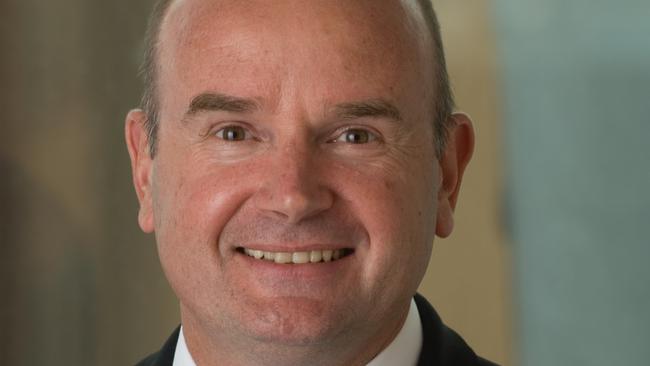Coronavirus: Mine bosses push contracts for top-dollar workers
Resources employers want Scott Morrison to embrace sweeping industrial reforms including individual contracts for 120,000 high-income workers.

Resources employers want Scott Morrison to embrace sweeping industrial changes including individual contracts for 120,000 high-income workers and 122 awards slashed to 19 minimum wages to boost the economic recovery from COVID-19.
ACTU secretary Sally McManus immediately branded the proposals, including gutting the role of the Fair Work Commission, as a revival of an extremist WorkChoices-style agenda that would be a “disaster” for the economy and significantly prolong the recovery.
The proposals by the Australian Mines and Metals Association, detailed in a letter to the Prime Minister, follow calls by national employer organisations for the government to examine changes to the Fair Work Act over coming months.
AMMA chief executive Steve Knott said on Monday the COVID-19 crisis had “lifted the lid on just how poorly designed Australia’s industrial relations system really is”.
“Years of uninterrupted economic growth and near-full employment have provided successive Australian governments the convenience of looking the other way on industrial relations reform,” Mr Knott told The Australian.
“This is a luxury the Morrison government no longer has.
“We have to get back in the business of industrial relations reform for Australia to bounce back in the post-COVID recovery period.”
Industrial Relations Minister Christian Porter said on Monday the government’s approach to any workplace policy change would “have one key focus: to drive jobs growth”.
Mr Porter said some of the AMMA’s proposals reflected its longstanding concerns. “The input is welcome and, along with the views of others, will form part of the overall consideration over the coming months of potential future reforms,” he said.
In his letter to Mr Morrison, Mr Knott calls for the introduction of “high-income employment contracts”, a form of statutory individual agreement for employees paid at least $132,000 annually.
Based on Australian Bureau of Statistics data, about 120,000 workers would be eligible across the resources and energy sector.
Mr Knott, whose call in April to scrap awards and enterprise agreements for six months was rejected by Mr Porter, urged Mr Morrison to consider replacing 122 awards with 19 industry minimum weekly wages and transferring the approval of enterprise agreements from the commission to the Fair Work Ombudsman.
He said there should be a single baseline for minimum working conditions, allowances and entitlements, such as the current National Employment Standards, that apply to all equally, with the only variance between industries being the minimum weekly pay.
“Above this baseline for minimum pay, and ensuring the minimum conditions of employment are met, employers and employees should be free to contract,” he said.
Under the proposed agreement approval changes, the FWO would have one month to audit or review an agreement and either confirm compliance or seek changes.
In a bid to combat ALP and union criticism that the proposals would leave workers worse off, Mr Knott said the government should consider a “deeming provision” to ensure any law changes could not result in the cutting of existing pay and conditions.
He said individual contracts would offer employers “bankable protection” against legal and unlawful strike action but he denied wanting a return to the Howard government’s Australian workplace agreements.
“The resources industry is the highest paying sector in the country, with the average weekly wage being more than twice that of the award.
“Nobody used individual agreements to pay people poorly,” he said.
Ms McManus said “for most people”, the COVID-19 crisis had highlighted the urgent need to strengthen workplace rights, “but for a handful of employer groups representing the very richest Australians, this global pandemic is an opportunity to push their tired WorkChoices ideological agenda of taking as many rights and protections off working people as possible,” she said.
“The radical changes outlined by Mr Knott are extremist and are not only a direct insult to all Australians currently dealing with this crisis, but would be a disaster for the Australian economy, and would significantly lengthen the recovery.”
Mr Porter said the economic recovery presented an opportunity to bring all key groups together to ensure there was a common focus on getting Australians back to work as quickly and safely as possible.




To join the conversation, please log in. Don't have an account? Register
Join the conversation, you are commenting as Logout